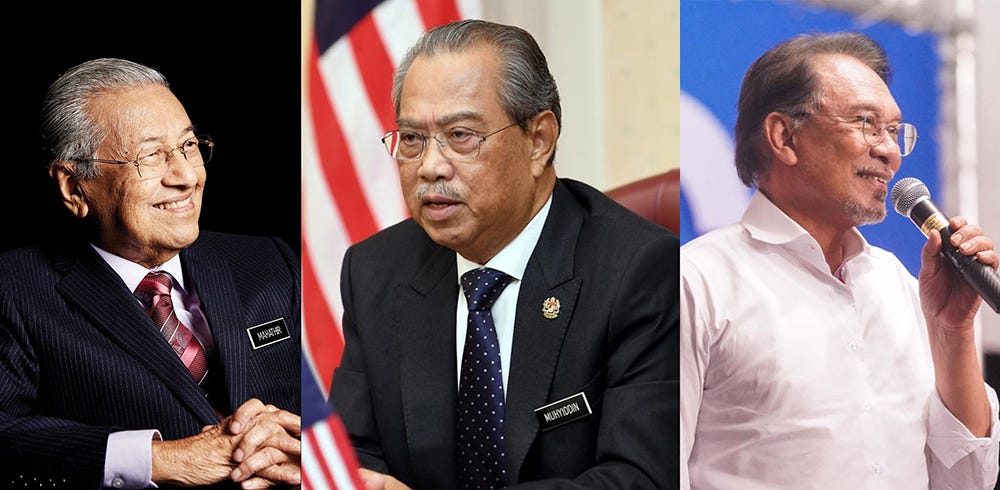Malaysian Politics: Nobody to Drain the Swamp
Ambition takes precedence over governance as leaders squabble

By: Asia Sentinel Correspondents
Malaysian politics is likely a recipe for continued chaos until the next election as a coterie of geriatric leaders from the 1980s slugs it out for political primacy at a time when the country is slipping into economic crisis from falling electronics and palm oil exports and crude prices are in collapse, among a plethora …
Keep reading with a 7-day free trial
Subscribe to Asia Sentinel to keep reading this post and get 7 days of free access to the full post archives.
